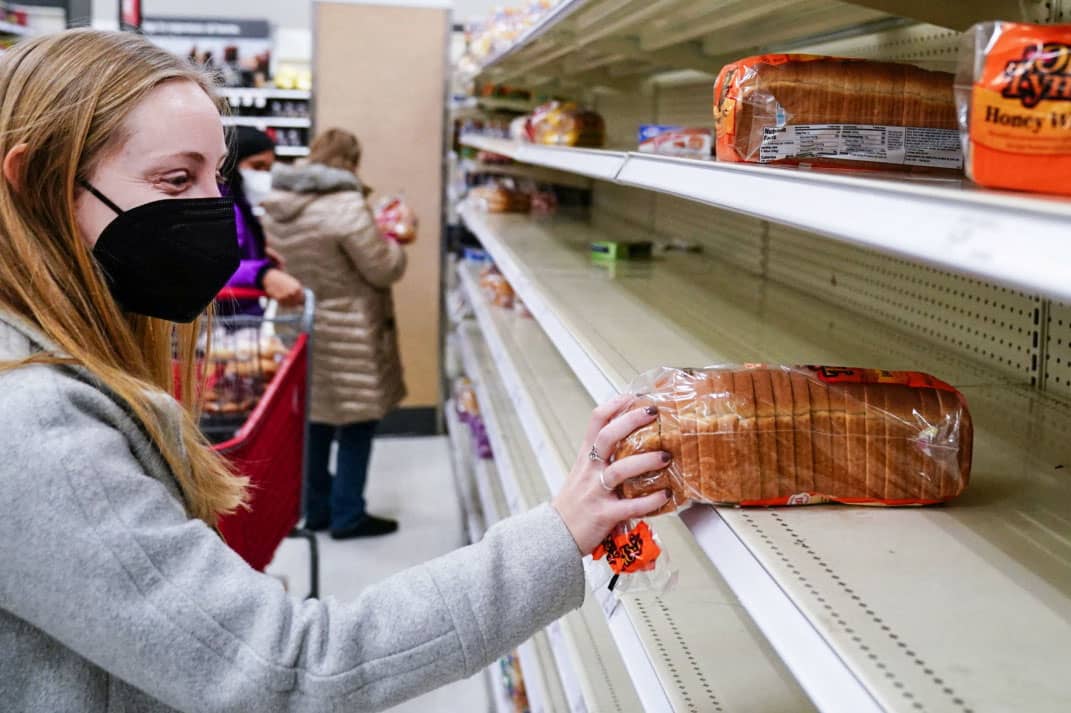Products You May Like
Empty shelves have returned at supermarkets as grocery employees call out sick and truckloads of food arrive late.
That’s one of the latest outcomes of the omicron variant, which is straining the workforce. Investors are seeing the pressure and bracing for a longer period of high costs for labor, transportation and food.
Shares of major grocers including Albertsons, Kroger and Walmart fell Tuesday. Albertsons shares were down more than 7% midday Tuesday, after the company detailed the supply chain challenges and inflated costs it’s seeing on its earnings call. The dive in its stock occurred even though the grocer raised its fiscal 2021 forecast. Shares of Kroger fell about 3%, while Walmart shed less than 1%.
Albertsons CEO Vivek Sankaran said on the call that the grocer has had low inventory or missing items in some categories for several months. He said the latest spike in Covid cases is prolonging some of those out-of-stocks.
“We were expecting that supply issues to get more resolved as we go into this period right now,” he said on the call. “Omicron has put a bit of a dent on that. So there are more supply challenges and we would expect more supply challenges over the next four weeks to six weeks.”
Albertsons said more employees are calling in sick due to omicron, which makes it more difficult to replenish store shelves and coolers — even when pallets of food and other items arrive.
The new coronavirus variant is exacerbating worker shortages across industries, from restaurants and retailers to airlines. Company leaders are being forced to make tough decisions, such as slashing service hours, canceling flights and closing stores. That has started to show up in the sales numbers, too. Lululemon is among the retailers that have warned that fourth-quarter earnings and revenue would be on the low end of estimates as it feels the effects of having reduced hours and limited staff.
For grocers, though, the challenge may be felt more because it is low-margin business where companies often have less room to raise employee wages, pay for overtime or pass on higher costs to customers. Some shoppers have less money to spend, too. The child tax credit, which gave families monthly payments, ended in December.
On Tuesday, Albertsons leaders said that costs have risen on ingredients, packaging, transportation and labor. They said the grocer has passed through some of that inflation, but has tried to hold the line on prices of essential items that customers buy frequently.

